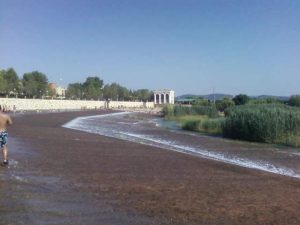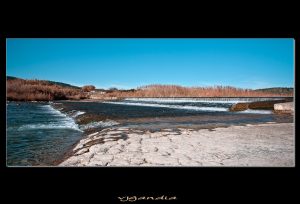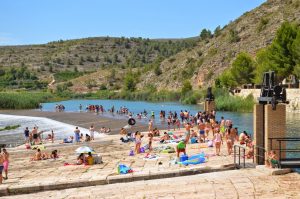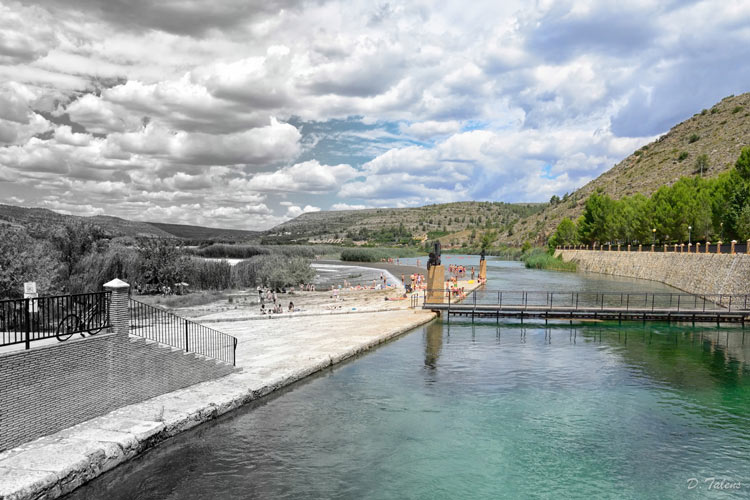L’Assut of Antella is a dam that was built by order of King Jaime I. It crosses obliquely the river Xúquer and from it is born the Séquia Reial del Xúquer. The water and the river are landscaped, which increases the beauty of the place and allows us to observe closely a part of the old irrigation network that was created in Valencia to feed its extensive and prosperous garden.
Is a beautiful place to visit with no doubt, as it houses a micro reserve of poplar flora, willows, reeds, baladres, oleanders and white poplars among other species.

The highest tourist attraction of Antella are the natural paratges with l’Assut of Antella (indoor platja); The source of the Séquia Reial del Xúquer; The place of the camping area of the Manyana’s ravine; The site of the Iberian settle to the mountain of the Creueta Alta and the situation to the Font Dolça ravine, and the picnic area of Camil, from which you see all the Vall del Xúquer.

Antella does not have many monumental building but it has some interesting, although two disappeared in the flood of 1982: the house of the Comportes, that has been totally rebuilt respecting, all that they have been able to the previous structure, and the house of the Community or of Waterer, which was destroyed by the strong river current, and was not built again, maybe, because it had lost the function for which it had been done.
The three remaining buildings are the Arab tower, built in the place where the palace house of the territorial lord was; The house of the King, located in the square of the same name, and the church of the Purísima, located in the Mayor Square, on the primitive Moorish mosque, in front of which was the palace house of the territorial Lord of Antella.

The population is of Muslim origin; Formerly in the term there was a town called Xarquia, which was abandoned because of the repeated floods of the Júcar. Its inhabitants built the present town, in a higher place on the normal river bed; Despite this, Antella has suffered several floods, some of which were very important during the nineteenth century. However, the name of the population is of Latin origin indirectly and of the Romance languages of the old Kingdom of Valencia, directly, and proceeds from antella (anticula), that is to say, «gates».



